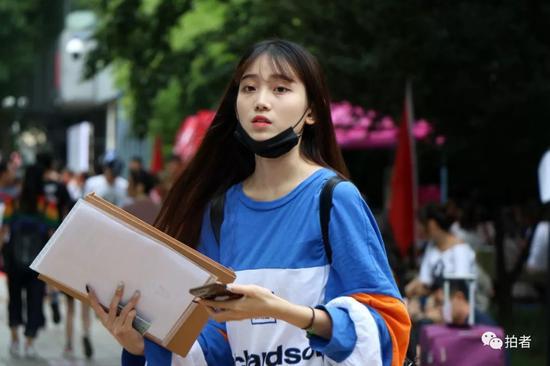
Friends who seem to post a photo of every meal they eat on Instagram or Twitter may not just be annoying, they may have a problem.
有些人喜欢把每顿饭都拍成照片发到社交网站上,这种行为不止很烦,频繁晒食物照片也可能是种病。
The trend of "foodstagramming" has bothered some restaurants to the point they have prohibited diners from snapping photos of their meals. But Dr. Valerie Taylor, chief of psychiatry at Women's College Hospital at the University of Toronto, argues that obsessively documenting one's meals could be a signal of a larger dieting problem.
给美食拍照日益流行,这种行为有时很招人反感,甚至有些餐馆禁止就餐者拍摄食物。但多伦多大学女子学院医院的精神病科主任瓦莱丽·泰勒医生说,过分地记录一日三餐这种行为,有可能显示出这个人有饮食障碍。
"I see clients for whom food has become problematic, and they struggle to go out and not have food be the key element of all social interaction: what they eat, when they ate, when they are going to eat again," Taylor told The Huffington Post.
泰勒告诉《赫芬顿邮报》记者:“我曾遇到患有饮食障碍的病人,食物成为他们的社交生活的重心:他们吃什么,多会儿吃的,准备什么时候再去吃……这些人要是没有食物作动力,甚至都不敢出门。”
Taylor spoke at the Canadian Obesity Summit in Vancouver last week about eating disorders and food's role in our culture. While Taylor admitted that sharing photos of food on social media is relatively common, she said that in some cases it can come at the exclusion of everything else.

上周泰勒在温哥华举行的加拿大肥胖峰会上发言,主要内容是饮食失调和食物在文化中的角色。虽然泰勒承认在社交网上分享美食照片已经很正常,但她也表示,在某些情况下,人们会将这种行为看得过分重要。
"The concern becomes when all they do is send pictures of food," Taylor told HuffPost. "We take pictures of things that are important to us, and for some people, the food itself becomes central and the rest -– the venue, the company, et cetera -- is background."
泰勒说,“当一个人要干的事只剩下上传食物照片时,这就很有问题了。我们拍照是为了保存对我们重要的事,但有些人把食物当做生活的中心,其他的,像是所在环境、周围的同伴等等全成了陪衬。”
While Taylor argues that producing such images may signal an unhealthy preoccupation with food, others have linked the consumption of food photography to eating issues and weight gain. Television host Mehmet Oz did a segment on his show, "Dr. Oz," in October arguing that "food porn" was making society fatter. Oz was referring to people who viewed glossy photographs, such as those in magazines and on blogs, but Food & Wine's Gail Simmons said food photography is nothing new, since her employer's been doing it for decades.
泰勒认为疯狂晒美食,是对食物过分关注的病态心理,其他人则认为这种行为会造成肥胖等饮食健康问题。电视节目主持人穆罕默德·奥兹十月曾在“奥兹医生”中做过一次专题栏目,论述“美食照片诱惑”正在让人们变得越来越胖。奥兹举例说人们会看到杂志或博客上鲜美诱人的食物照片,但来自“美食美酒”网站的盖尔·西蒙斯反驳说食物照片不是新兴产物,她的老板早在几十年前就这么做了。
However, Taylor isn't just focused on Instagram users. She noted in her speech that food tattoos send a similar warning sign.
然而,泰勒关注的不仅仅是网上传照片的人。她在演讲中指出,食物纹身也传达出相似的预警信号。
"I think for some people it highlights how important food has become," Taylor said. "Just like the tattoos of 'I love McDonald's' replacing the 'I love Mom' tattoo, food is taking on a very important role. It has moved beyond simply fuel."
泰勒表示:“我觉得这种纹身会让人过分重视食物。就像是‘我爱麦当劳’的纹身代替‘我爱我妈妈’一样,食物不再是简单的能源补给,它在我们心中的地位已变得相当重要。”
A 2012 study carried out by the University of Southern California found that spending a lot of time looking at appetising food online stimulated the brain and causes people to eat too much.
2012年南加州大学的一项研究发现,如果花太多的时间上网看那些看起来很美味的食物照片,会刺激大脑造成人们吃得太多。











